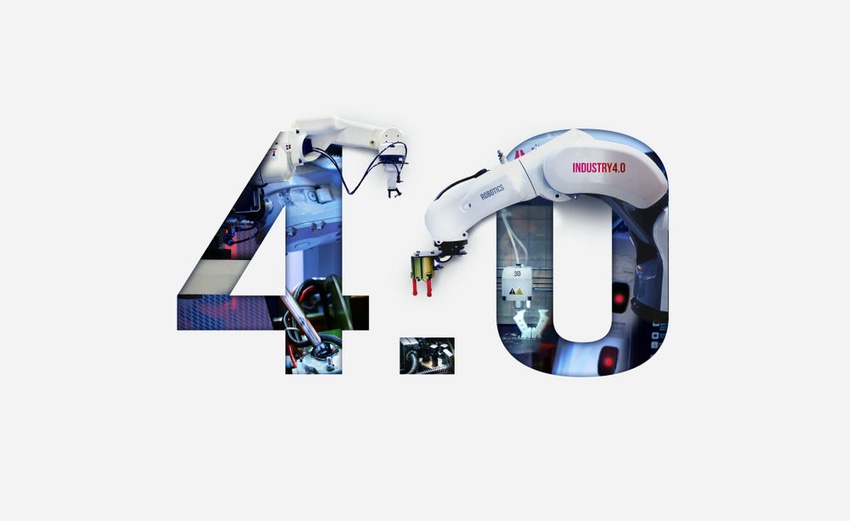There are huge revenue opportunities in Industry 4.0. Go after them.
May 28, 2019


Bryan Reynolds
By Bryan Reynolds, Director of Sales Operations, TBI
We’ve all heard the buzzwords “digital transformation” and many of the industry’s most prolific thought leaders have evangelized the phrase and expressed the importance of embracing it for future successes.
 From these digital transformation conversations, myriad ideas have flashed across the partner and customer communities, technologies such as cybersecurity, Internet of Things and artificial intelligence. It’s disruption at its finest: all of these new (sometimes misunderstood) concepts that create a “yellow brick road” to bring revenue cascading in.
From these digital transformation conversations, myriad ideas have flashed across the partner and customer communities, technologies such as cybersecurity, Internet of Things and artificial intelligence. It’s disruption at its finest: all of these new (sometimes misunderstood) concepts that create a “yellow brick road” to bring revenue cascading in.
But, as of late, the buzz seems to be a bit subdued. Is the innovative, sexy idea of digital transformation waning, or is there something else afoot here? Perhaps we misread the potential?
Being wrong about a trend is uncomfortable, especially when businesses have invested a lot in the marketing behind the idea, so I conducted a few thought experiments. I came up with all kinds of pros and cons about digital transformation (DT), most around business process and ROI, but nothing that was necessarily explaining the new “energy” around DT that I was experiencing. Then I came to the random question of “is digital transformation even sustainable?” Looking back in history, all trends fade out or evolve into something different.
Bear with me because I think we may be onto something. The base selling point of digital transformation is that it takes businesses into the next level of sustainability and scalability . . . but does it?
Have you heard the term “Industry 4.0?” Industry 4.0 (I4) is a (generally accepted) term for the 4th industrial revolution; a revolution that we are both in and journeying toward at the same time and one that involves data-driven automation in manufacturing technologies. Let’s pump the brakes a little bit because I know what you’re thinking . . . manufacturing isn’t necessarily the focus for some of you reading this, but there are a lot of convertible concepts that we can tap into, so keep reading.
Industry 1.0 was mechanization, 2.0 was mass production, 3.0 was computer and automation, and here we are at 4.0: the “smart” facilities and systems. All the versions had innovative implications and changed the landscape in some way. If we follow the evolution of the revolutions through to I4, we find that it’s not machine automation in I4 so much as machine cooperation — and it’s at this point where a light bulb turned on for me. Not disruption, but preservation.
I4 companies/customers are going to be (and already are) BIG consumers of the next generation of technology (AI, IoT, blockchain, etc.), but not for the reasons to which we’re accustomed. It’s this reason that we need to “channel” I4 into what it is we do as the standard of how the newest generation of technology will be perceived and consumed.
DaaS – Disruption as a Service
We, as service professionals, tend to always look for ways to add the most value to whatever we do. I’ve spoken and written about how experience overtakes price, drives decisions, and encourages returning business more than anything, but executives marching toward the I4 revolution are approaching this a bit differently because their business problems don’t quite fit the “mold” we’re used to.
First, the drastically changing economies are making it difficult for them to develop fully baked strategies for the future. Deloitte published a survey that found that leaders feel they have too many options from which to choose and, in some cases, they lack the strategic vision to help guide their efforts. Because of this, they tend to utilize the advanced technologies of I4 to protect their positions rather than disturb their marketplace. Emerging tech, although consumed by I4-minded businesses, is used as a tool to preserve current standings as a means to outperform and compete.
This is foreign to most because we talk extensively about how the new technologies emerging are a disruption to the status quo — and disruption equals growth. Disruption is how you beat your competition, and we, as the leaders of these technologies, are providing them with this disruption. But our efforts may be futile if we don’t completely understand the implications I4 has on the other business segments.
Preserve to grow, not disrupt to grow.
While most I4 companies are typically typecast as manufacturing, the I4 movement bleeds into …
… virtually all other sectors as well. Manufacturing facilities (successful ones) are operationally sound with little waste. With the addition of IoT and AI, this segment will become the gold standard of how business operations are run, how emerging technology is consumed, and, perhaps most importantly, how talent (no, it’s not always about machines) is developed and acquired. You will begin to see banks and retail storefronts face business needs similar to those faced by large manufacturing facilities, staking their own claim in the fourth revolution. Therefore, I4 won’t solely focus on industrial markets, but will affect consumer and commercial markets as well.
Where Is the Opportunity in the 4th Revolution?
IoT: Earlier, I stated that it was more about machine cooperation rather than automation. Automation is great but can be rigid in its meaning. AI allows automation to be extremely robust, creating a cooperative environment rather than a reactive one. This generates a lot of opportunity for I4 companies to enhance their current operations without overburdening their talent, but also creates threats into their infrastructure (which we will talk about in a bit).
Talent: Because of the need for more advanced technology strategies, the need for a specific type of employee emerges. Executives are very interested in investing in data visualization, such as business intelligence tools Domo or Tableau, as well as a user interface as a means to enable their employees to be more agile and make informed decisions faster to enhance their current operations. They are interested in tools that work to enable their employees to move faster and make more data-enriched decisions. Excel, while valuable, just doesn’t cut it.
Security: By reading this far, you can probably surmise that an obvious opportunity in I4 is security. If I4 companies want to preserve and protect their standing in the industry, they need to protect what they currently have. With the many vulnerabilities that IoT opens up (and manufacturing/logistics companies will consume a lot of IoT), security will be the first question for CIOs and CISOs. With everything connected, one compromised device means a compromised business, which means the future of the company isn’t safe. The security snowball grows quickly in I4.
Blockchain: Although our industry is still evolving this concept for cross-segment uses, it is to be noted in I4. Security and blockchain in I4 go hand-in-hand. If you think about the vast amount of information that passes between cooperating machines, the need for complete, accurate, secure and synced data will be vital to augment existing operations. It paves the way for machines to authenticate themselves with information on other machines with little interference from a user, not to mention it is a very secure way to maintain accurate records in a fast-paced environment. I wouldn’t be surprised if we started to see the term BChaaS (blockchain-as-a-service) emerge along with more and more providers of the service.
It’s not only serendipity that the “4” on the keyboard shares its space with the “$” sign. There are huge revenue opportunities for you and your business in Industry 4.0. These businesses will be templates for how others consume technology to augment their existing business operations, talent and quality. Seize the opportunity to enhance, preserve and enrich, not necessarily disrupt.
Bryan Reynolds is director of sales operations for TBI, where he leads an organization of more than 75 individuals who provide TBI’s partner community with back-office support ranging from quoting and solution design to implementation advocacy and project management. He pushes the boundaries of service by implementing ways to continuously add value for TBI’s agents. Bryan is an avid writer and speaker within the industry, serves as a member of the Editorial Advisory Board for Channel Partners as well as a member of the board of directors for Channel NX2Z, an organization dedicated to the advocacy of the next generation of channel leaders. He was recently selected by Crain’s Chicago Business as one of Chicago’s Notable LGBTQ Executives and is TBI’s self-proclaimed “Chief Millennial Officer.” Follow Bryan on LinkedIn or @TBImasteragent on Twitter.
Read more about:
AgentsYou May Also Like
